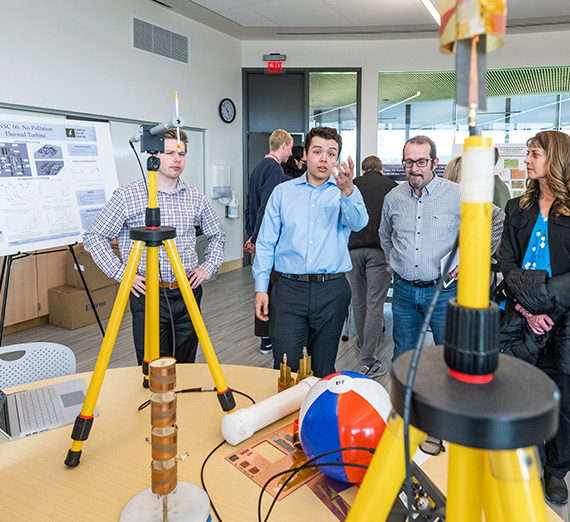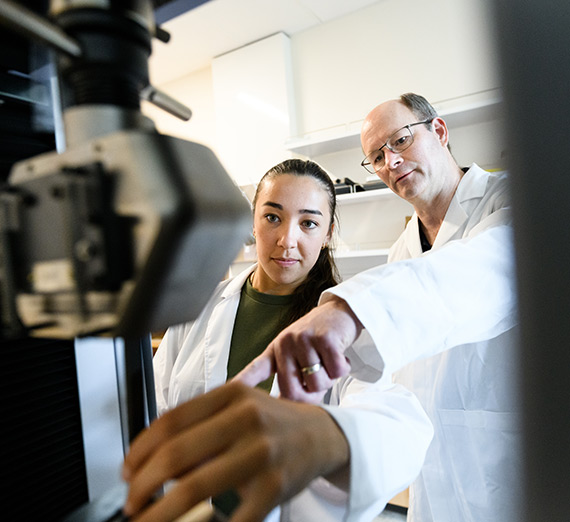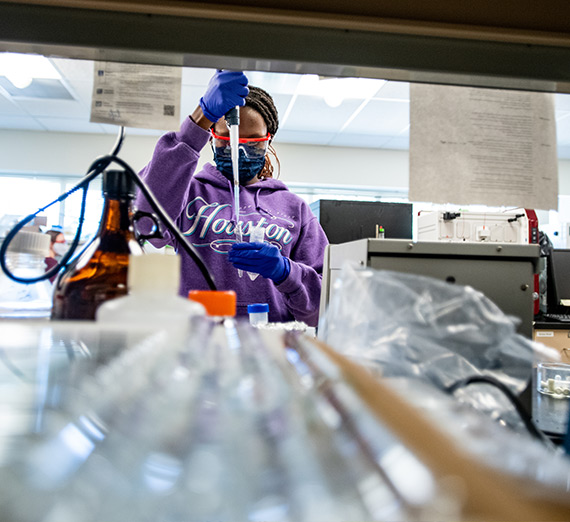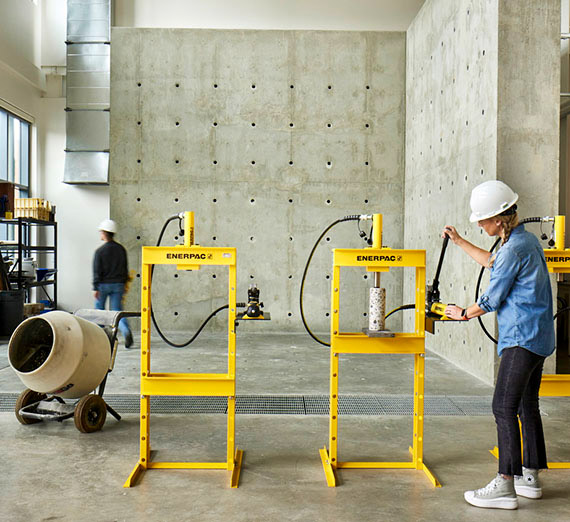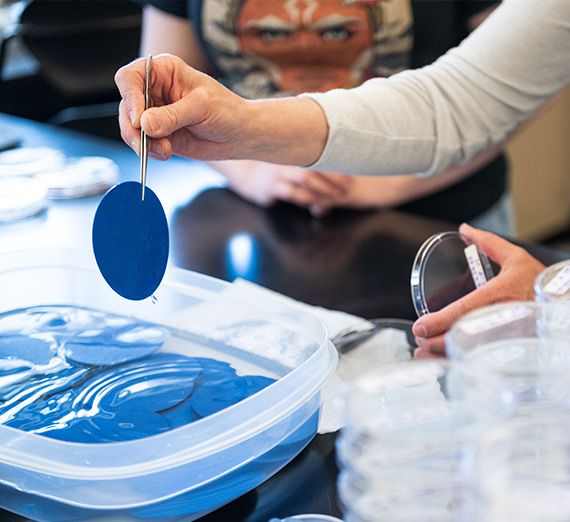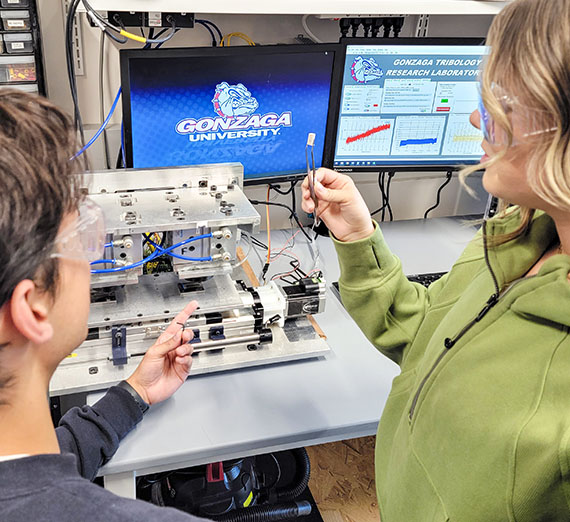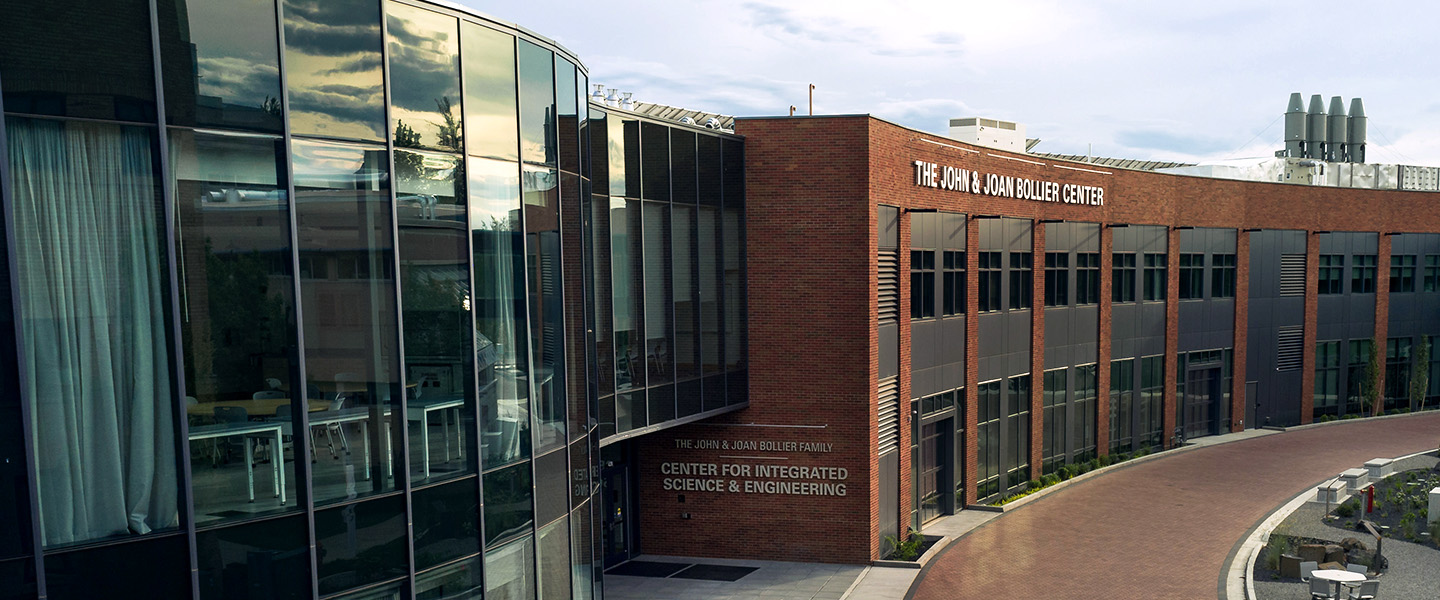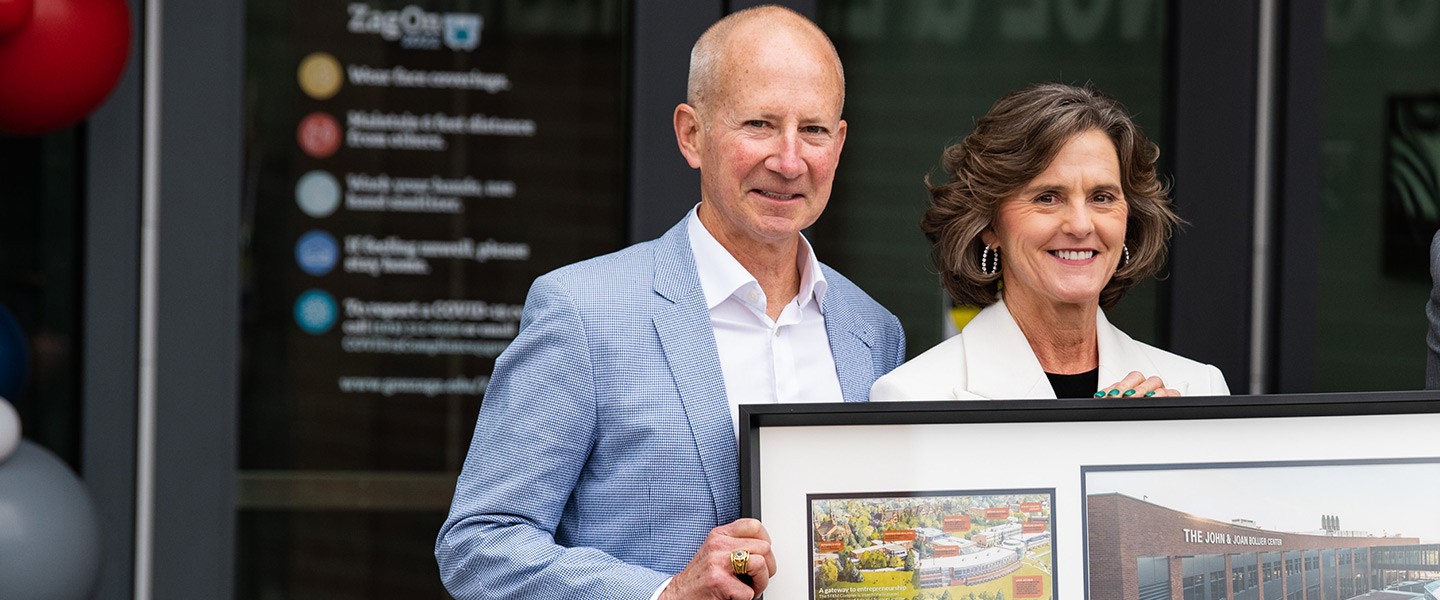Where Students Learn By Doing
In fall of 2021, Gonzaga University unveiled its new, collaborative science and engineering facility, The Bollier Center. With an array of labs and collaboration spaces, this 82,679-square-foot facility empowers students to go beyond lectures and theory, and apply their learning to hands-on research, experiments and projects.
- The Bollier Center combines with the PACCAR Center for Applied Sciences (29,138 square feet), Herak Center for Engineering (78,240 square feet) and the Hughes Hall science building (80,433 square feet) to create a 270,490 square-foot integrated STEM complex.
- A new sky bridge connects the west end of the Bollier Center to the south end of Hughes Hall.
- Transparent spaces put science and engineering on display, encouraging engagement with the entire community.
- Students of all majors experience this facility through core curriculum classes, study center and club activities.
Photo above by Benjamin Benschneider
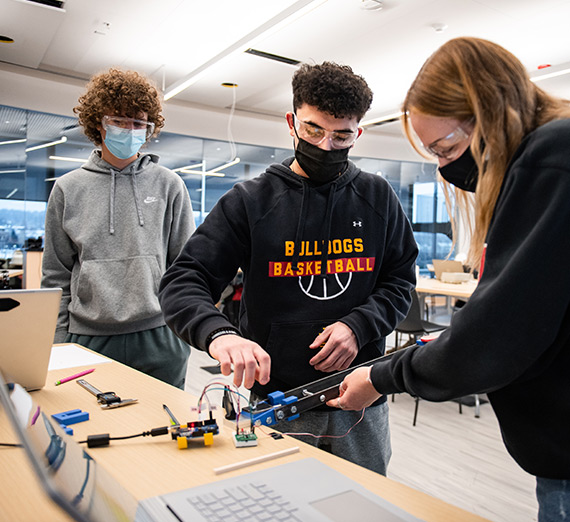
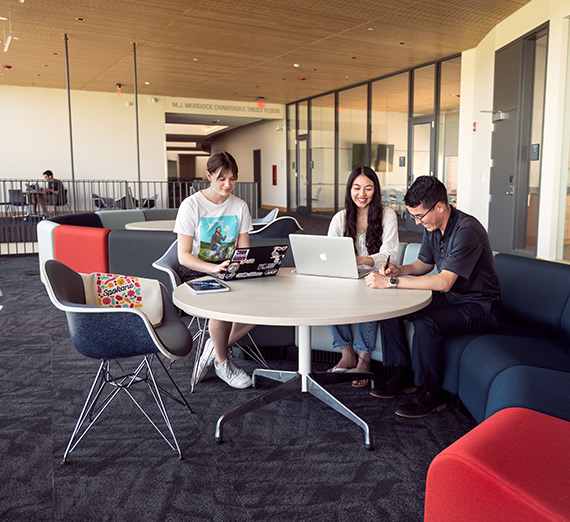
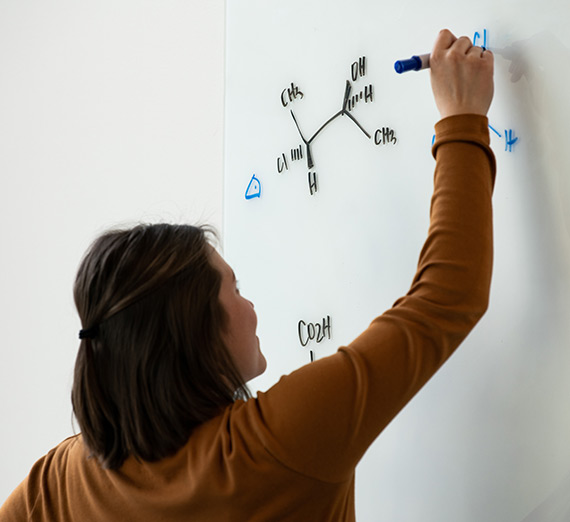


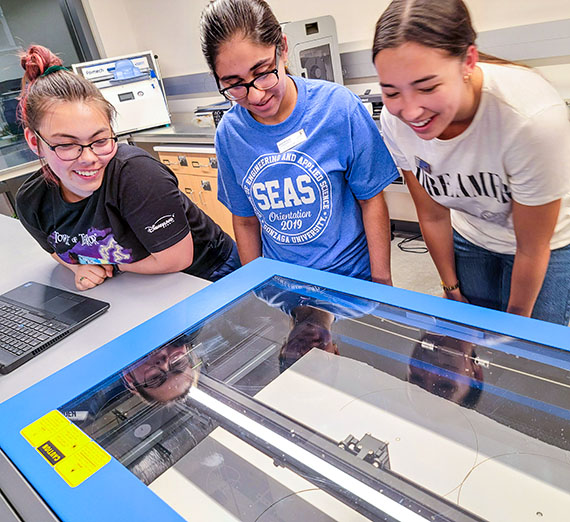
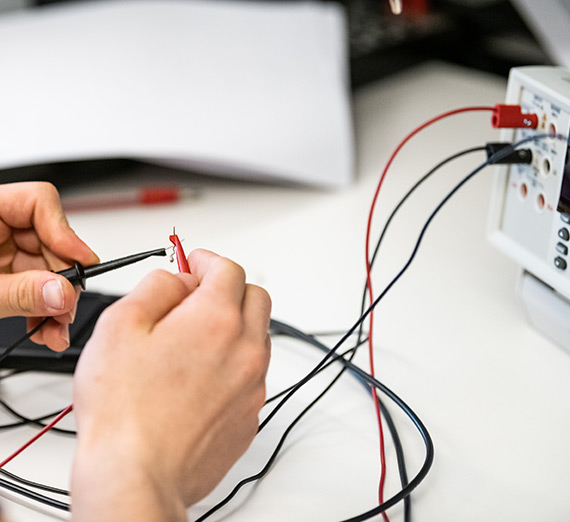
.ashx?rev=b3ebf342501f4f339a59f90b9468af06&h=522&w=570&la=en&hash=E5F98D4D328CBDC86AE7908456477F50)
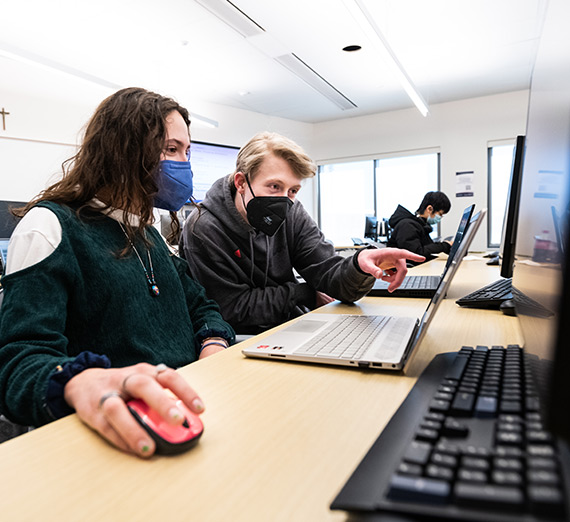
.ashx?rev=eaf2acf4d545426284e9610158dcf626&h=522&w=570&la=en&hash=8ED06FB367874271CA121BEB7A1D9F20)
